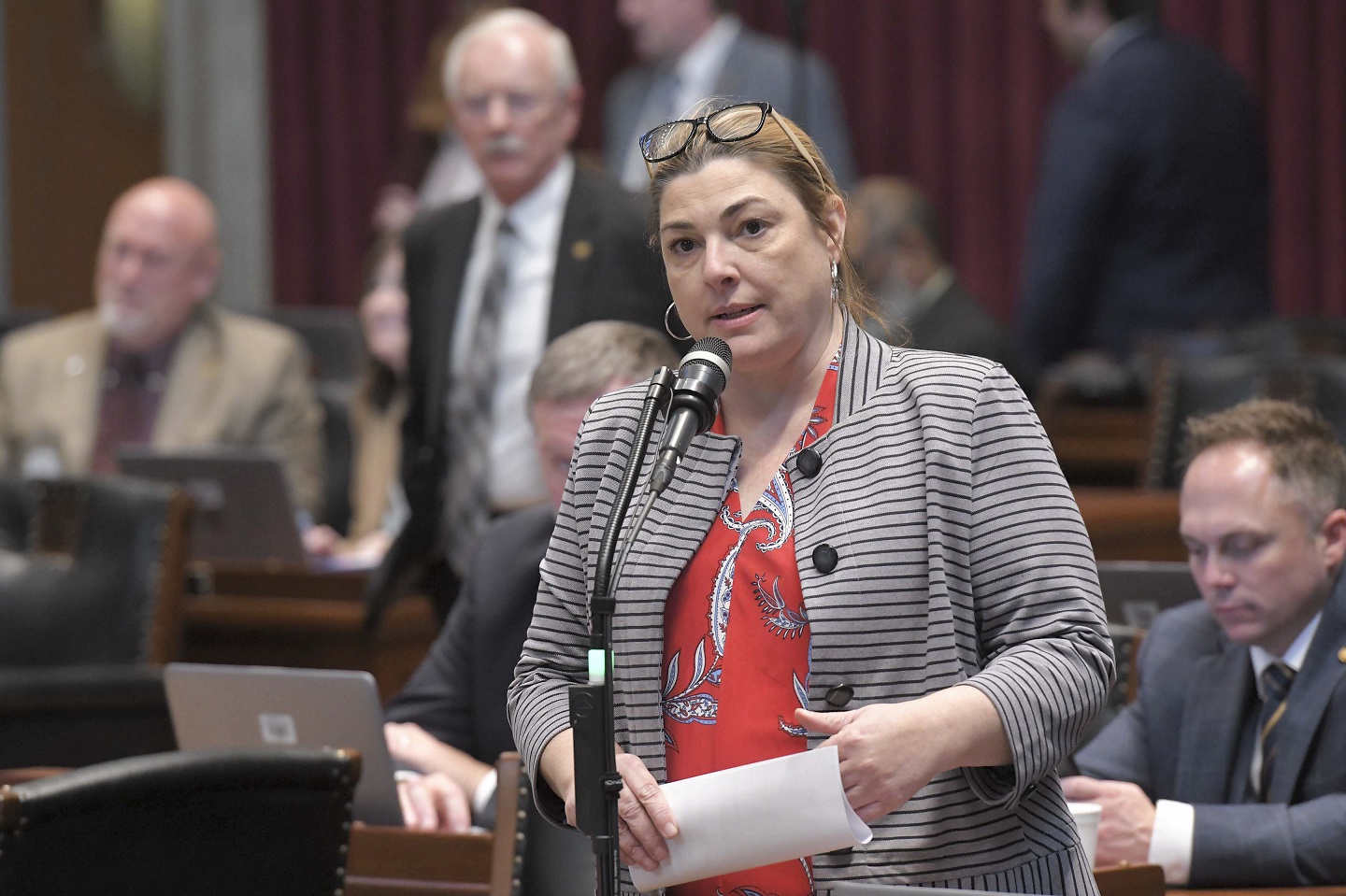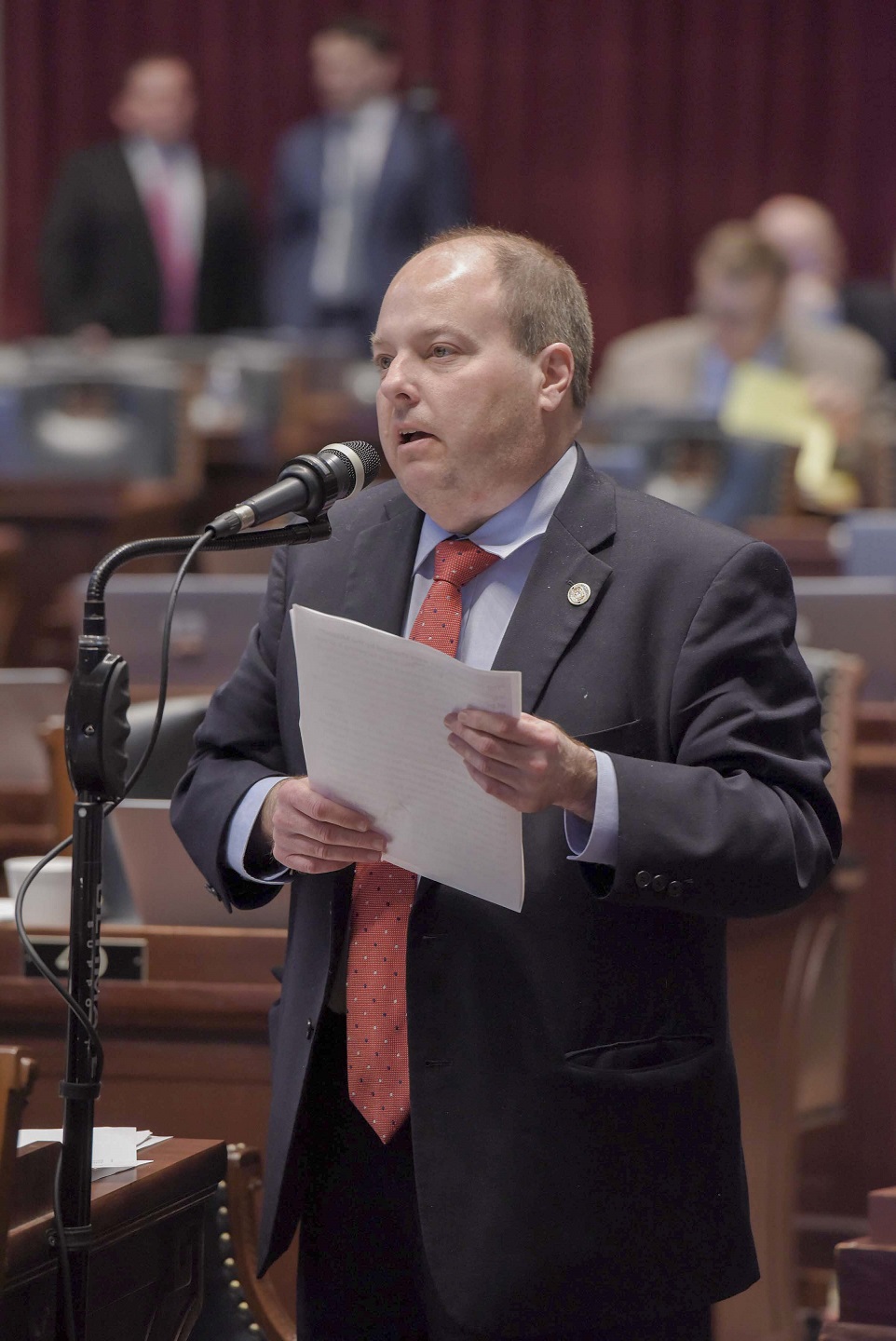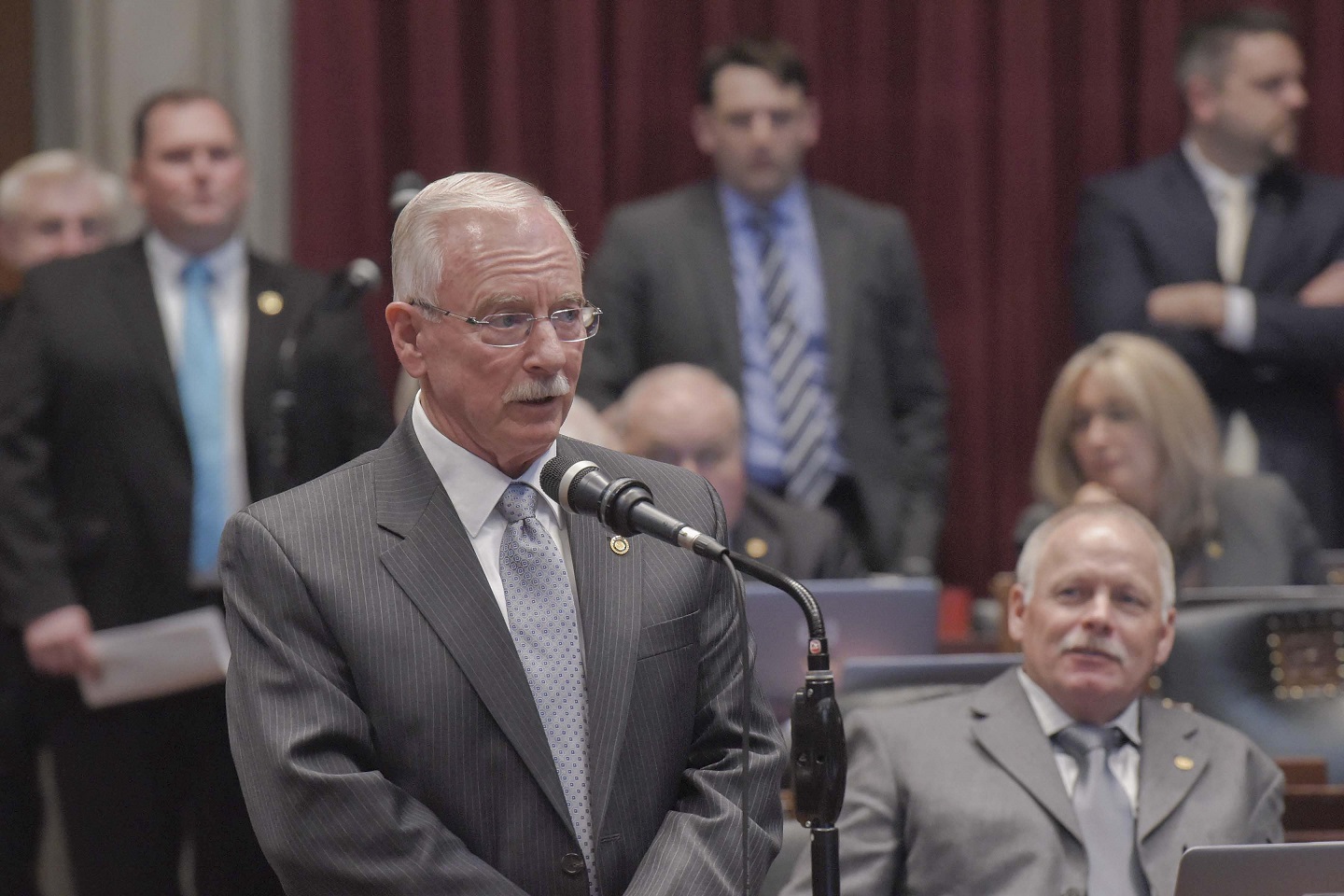The families of fallen veterans, police officers, and firefighters, and of those missing in action, would no longer have to foot the bill for highway or bridge memorial signs honoring those loved ones under a bill approved by a House committee.

Legislation sponsored by Representatives Tricia Byrnes (R-Wentzville) and Don Mayhew (R-Crocker) would require the Department of Transportation to cover those costs.
“Keep in mind, folks, these are the folks who gave all to represent our country … if we’re going to have honorary signs, the very least that we can do is pay for it,” said Mayhew when presenting the legislation to the House Committee on Transportation Accountability, which he chairs.
Byrnes joined Mayhew in proposing this change in response to the effort to honor Marine Lance Corporal Jared Schmitz, a Wentzville native, who was one of 13 U.S. military members who died in a 2021 bombing at an airport in Kabul, in Afghanistan. She learned that when Corporal Schmitz’s family wanted to have a section of highway named for him they received an invoice from the Department of Transportation for more than $3,000.
Schmitz said he talked to the families of the other 12 personnel who died at the same time as his son. None of them had to pay the cost of having a memorial sign placed in honor of their loved on, on a highway in their respective states.
The Department of Transportation did not oppose the legislation but offered information on how the system currently operates. Chief Safety and Operations Manager Becky Allmeroth said the Department has to consider other signage.

Allmeroth told legislators, “We have 830 memorial designations across the state highway system. The number is expected, with this bill, to increase exponentially if the current participation fee is removed.”
Most committee members voiced support for making the change in policy.
“Personally I don’t care about the costs. I just think we need to do this. I don’t think the family should pay,” said Republican Bob Bromley (Carl Junction). “If we’re making the Slim Pickens Highway or Mark Twain Highway at Hannibal I understand having a fee. If we’re doing it for fallen soldiers I think [having a fee is] ridiculous.”
The committee voted unanimously in favor of the bills, House Bill 882 (Byrnes) and 518 (Mayhew), advancing them to another committee for consideration.


